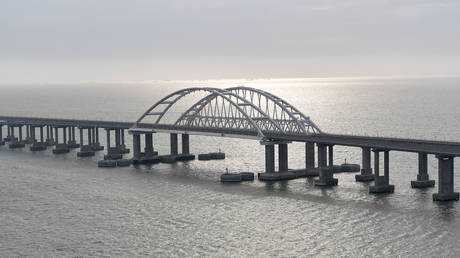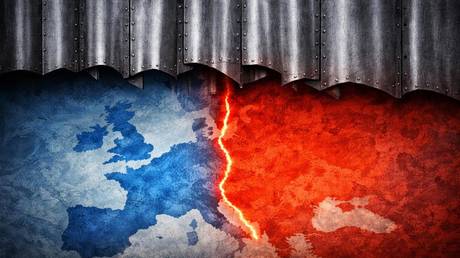
Eight individuals were also sentenced to community service for their role in the construction
Four Dutch companies and eight citizens have been found guilty of violating EU sanctions against Russia by supplying machinery, parts, and professional services used to build Moscow’s bridge to Crimea, the Dutch public prosecutor’s office announced on Friday.
“The Crimean Bridge was built partly due to the use of Dutch knowledge and expertise,” the office said in its statement.
The guilty parties were not publicly named, as the cases were settled out of court. One company was made to forfeit €71,330 ($75,210) in revenues supposedly earned from the project, and the four companies together paid a total of €160,000 ($169,000) in fines for the sanctions violations.
The individuals were sentenced to between 20 and 60 hours of community service each. Another three companies are said to still be under investigation regarding their participation in the project, which began construction in 2015, opening to vehicular traffic in 2018 and rail in 2019.
Spanning the Kerch Strait with a length of 19km (12 miles), the Crimean Bridge is the longest in Europe. It quickly exceeded the popularity of the ferry, which was formerly the only direct means of transport between mainland Russia and Crimea and has become an economic lifeline for the region after the US-backed coup of 2014 installed a new regime in Kiev.
The US and EU have both imposed sanctions on dozens of companies and individuals involved in the construction of the Crimean Bridge, expanding the sanctions they initially deployed against Moscow over Crimea’s 2014 referendum in favor of becoming part of Russia – a move the West and the government in Kiev refer to as an illegal “annexation.”
Since Russia launched its military operation in Ukraine in 2022, Kiev has openly sought to destroy the bridge, which both countries view as a critically important strategic link and a symbol of Moscow’s permanence in Crimea. Ukraine has taken credit for multiple attacks on the structure, even releasing a commemorative postage stamp likening it to the doomed ocean liner Titanic.




